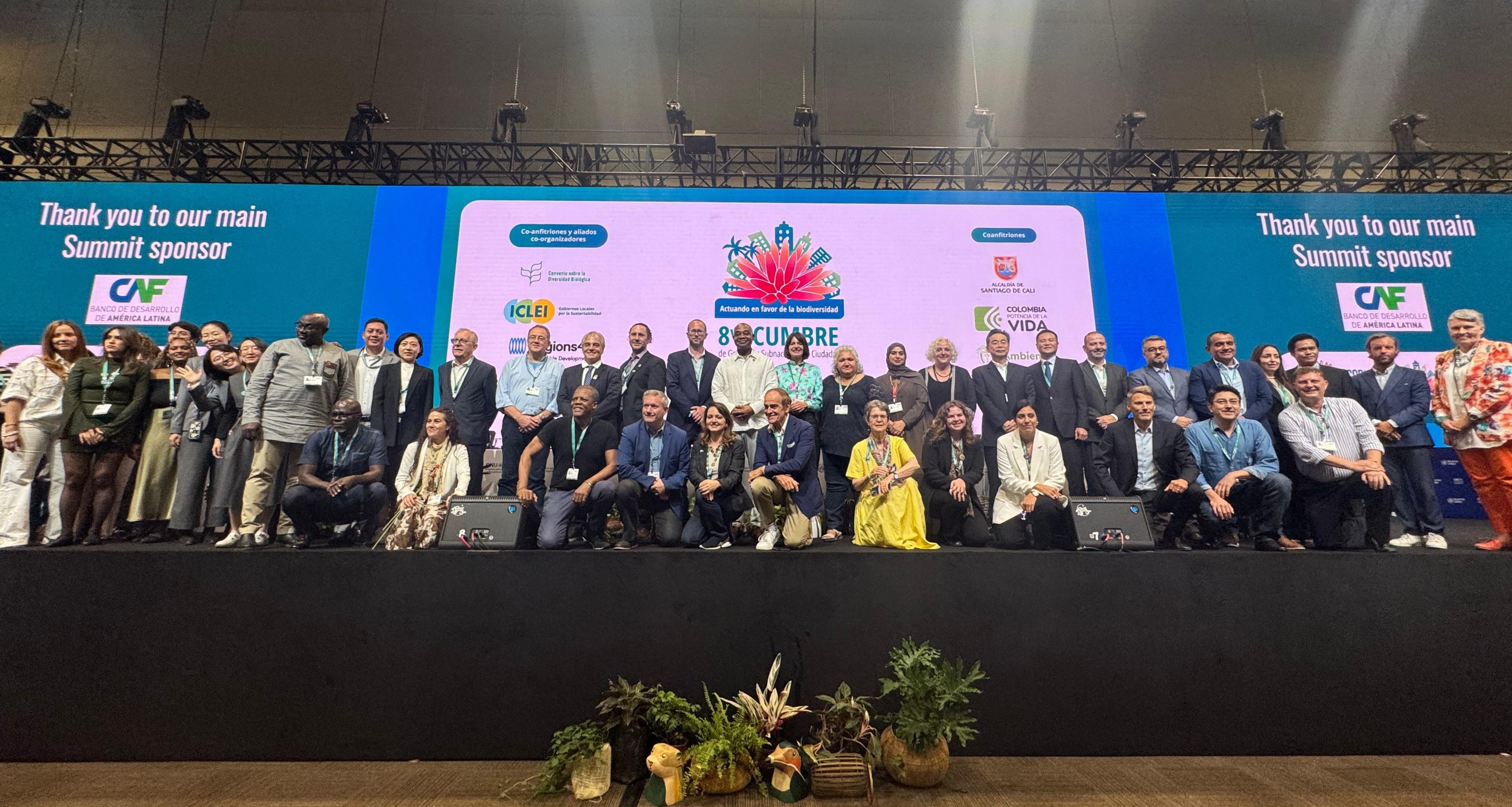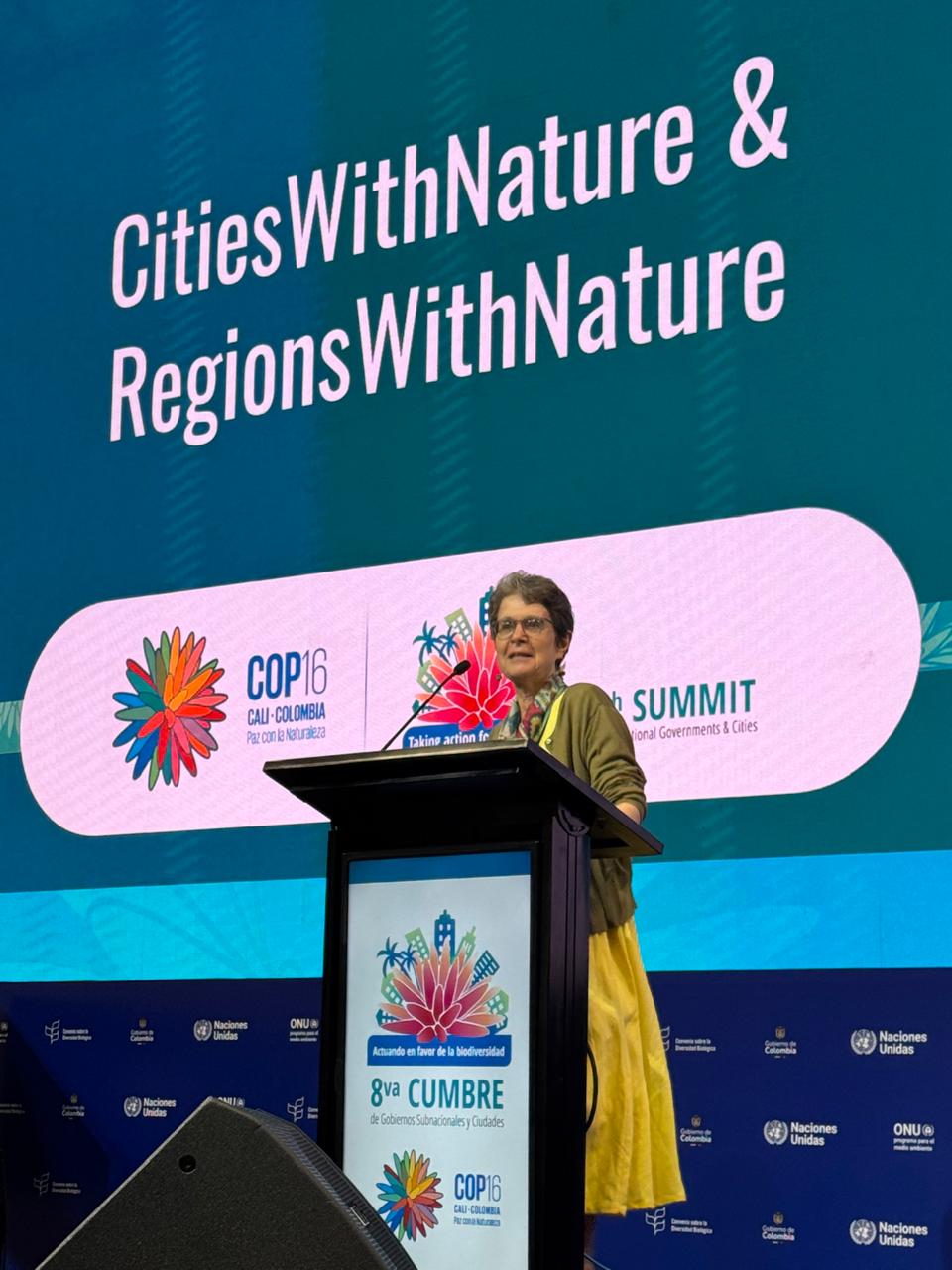
Ingrid Coetzee, Director, Nature Biodiversity & Health, ICLEI CBC
The 16th Conference of the Parties to the Convention on Biological Diversity (CBD COP16) recently took place in Cali, Colombia, bringing together governments and organizations from across the globe to address escalating biodiversity loss. While COP16 may not have concluded as hoped, many achievements were made.
Cities and regions were applauded as key actors that are stepping up to play a pivotal role in protecting natural ecosystems. At the forefront of these efforts are the CitiesWithNature and RegionsWithNature initiatives, which empower local and subnational governments to take concrete actions towards biodiversity conservation.
The 8th Summit for Subnational Governments and Cities, which took place on 26 October 2024 in the main plenary negotiation hall, brought together Governors, Mayors, and other subnational leaders from across the globe to collaborate with national officials and key stakeholders to discuss local and regional biodiversity initiatives, aimed at supporting the implementation of the Kunming-Montreal Global Biodiversity Framework (GBF) and the Plan of Action outlined in Decision 15/12.
The 8th Summit was widely lauded as a true demonstration of a whole-of-government and whole-of-society approach, and saw many key announcements relating to CitiesWithNature and RegionsWithNature. Additionally, Plaza Quebec at COP16, funded by the Government of Quebec, provided a vibrant space for all of the Major Groups, including subnational and local authorities, to hold dynamic sessions and discussions for the full two weeks of the COP.
Strong results for CitiesWithNature and RegionsWithNature
CitiesWithNature and RegionsWithNature have become pivotal tools for implementing biodiversity strategies at multiple government levels. By creating a framework through which cities and regions can showcase and report on their progress, these platforms enable them to support National Biodiversity Strategies and Action Plans (NBSAPs) and contribute towards global biodiversity objectives. Today, over 350 cities and regions from 77 countries are part of these initiatives, with Beijing being the 350th member city, symbolizing China’s growing role in the global biodiversity movement. Several Chinese cities, all part of CitiesWithNature, that have significantly promoted local biodiversity initiatives were also recognized at the Summit for Biodiversity Charming Cities Best Practices. The most recent cities awarded this accolade are Anji City, Beijing City, Beilun District of Ningbo City, Lishui City, Ninghe District of Tianjin City, Ordos City, Shaoxing City, Shiyan City and Xiamen City.
In a landmark moment for global conservation efforts, over 100 new cities and regions have joined the CitiesWithNature and RegionsWithNature partnerships since COP15, demonstrating a growing commitment from local governments worldwide to address biodiversity challenges and contribute to the GBF. These initiatives, endorsed by the Secretariat of the Convention on Biological Diversity (SCBD), provide a collaborative platform where local and subnational governments can report on and track their contributions towards national and global biodiversity goals.
Cali, Colombia, host city of COP16 and co-host of the 8th Summit, also joined the CitiesWithNature initiative. “As Mayor of Cali, it’s an honor to be host of this historic moment, at a crucial point in time, in which nature is asking us to take important measures,” said Mayor Alejandro Eder. “It’s not a choice, but an imperative need, and not one that falls to a single country or government. Our planet is demanding we do more – and cities are at the center of this discussion. Cities are, and will be, the epicenter of change: We have the creativity, talent and will to protect our planet, starting right here in cities.”
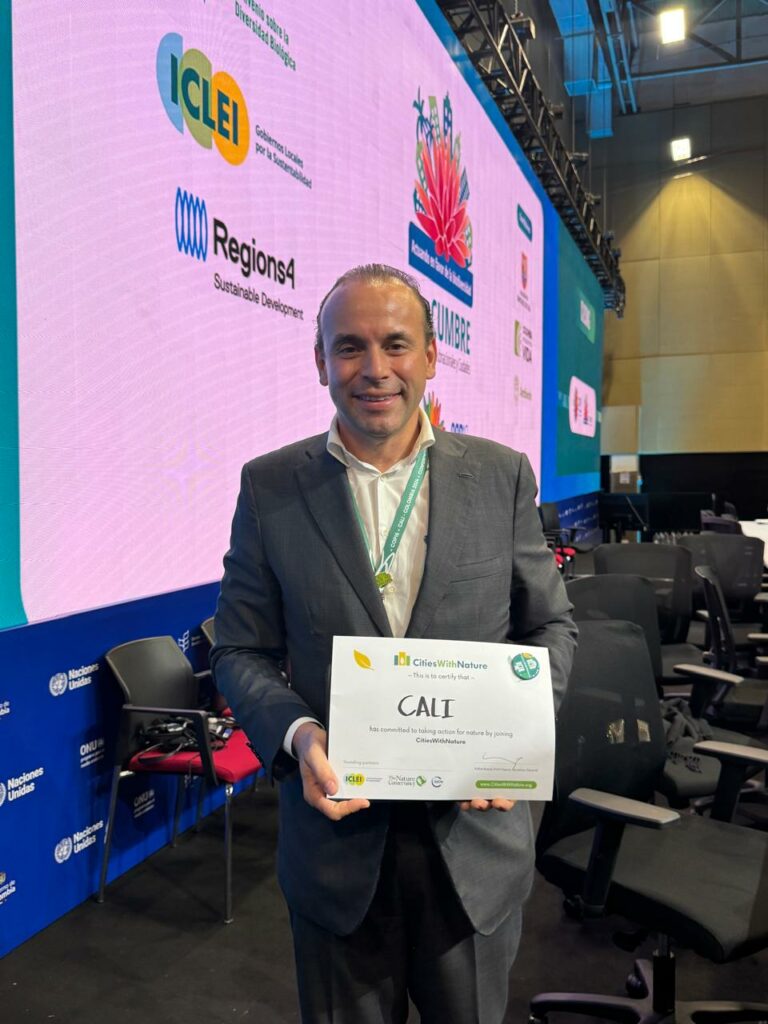
Alejandro Eder, Mayor of Cali, Colombia
Bold steps for subnational action in Brazil
One of the most significant announcements made at the recent Summit came from Brazil, where the Brazilian Association of State Environmental Entities (ABEMA) declared that every state in the country would be joining the RegionsWithNature initiative. This historic step makes Brazil the first nation to have all its states sign up for RegionsWithNature. This collective commitment highlights Brazil’s recognition of the critical role of regional governance in biodiversity protection, and aligns with the country’s dedication to preserving its rich ecosystems and natural heritage.
Expanding regional action
Recognizing the need to provide a platform that addresses the specific needs of regions, Regions4 and ICLEI launched the RegionsWithNature Action Platform, as part of the RegionsWithNature initiative, at the Summit. This sister initiative to CitiesWithNature is designed to empower regional governments to develop localized biodiversity actions. It serves as a valuable resource for regions to share knowledge, report achievements, and access support tailored to regional governance. The Government of Quebec, one of the founding members of RegionsWithNature, has played a crucial role in financing the platform, underscoring the significance of regional commitment and partnership in expanding the initiative’s reach and impact.
Welcoming new partners onboard
Started in 2016 as a competition between Los Angeles and San Francisco, the City Nature Challenge (CNC) has grown into an international event, motivating people around the world to find and document wildlife in their own cities. Run by the Community Science teams at the California Academy of Sciences and the Natural History Museum of Los Angeles County (NHM), the CNC is an annual four-day global bioblitz at the end of April, where cities are in a collaboration-meets-friendly-competition to see what can be accomplished when we all work toward a common goal. In 9 years, 7.13 million observations have been collected! The CitiesWithNature initiative was thrilled to welcome the City Nature Challenge onboard as a new partner at the 8th Summit.
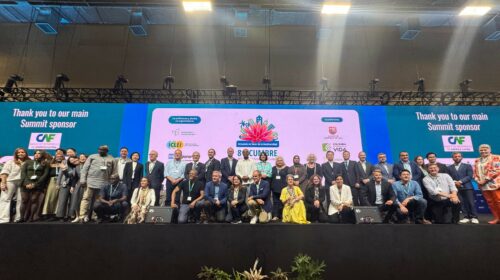

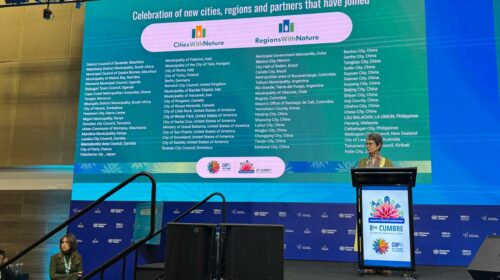
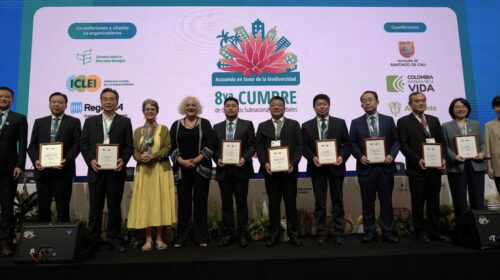

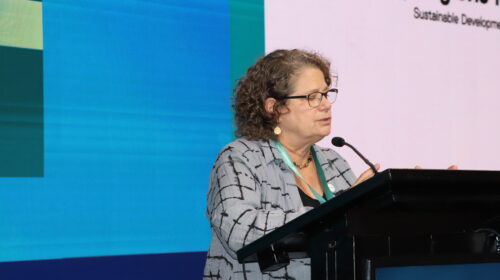

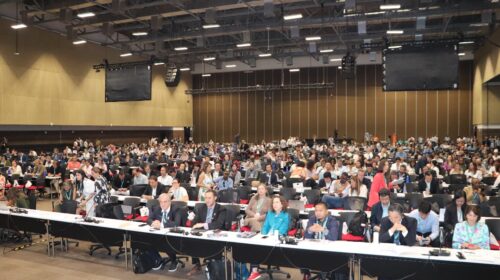



Looking ahead for greater biodiversity preservation
The CitiesWithNature and RegionsWithNature initiatives offer cities and regions globally a way to be accountable and transparent about their biodiversity commitments. With hundreds of cities and regions now part of these initiatives, the platform is well-positioned to help local and regional governments achieve their biodiversity goals, supporting a broader movement toward a sustainable and biodiverse future.
As these partnerships continue to grow, they underscore a critical insight: local and regional governments are key players in driving biodiversity preservation. By creating spaces for cooperation, knowledge exchange and accountability, CitiesWithNature and RegionsWithNature serve as essential tools in the global effort to protect natural ecosystems and ensure sustainable urban development. The steady growth in membership is a testament to the increasing recognition of these platforms and the shared global commitment to conserving our planet for future generations.
